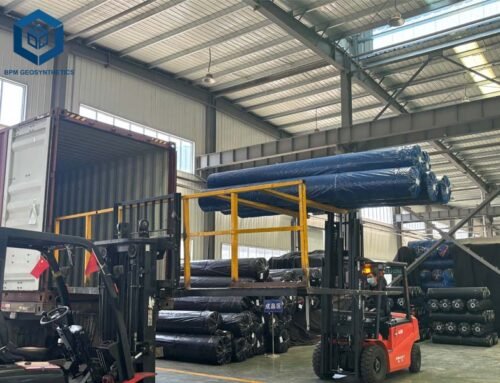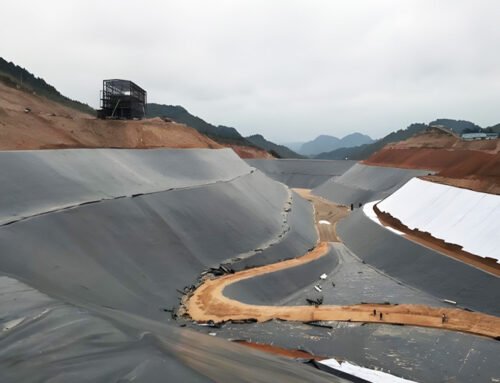Geocells play a very important role in the geotechnical materials industry. They all play an important role in enhancing road foundation and road stability. However, there are differences in product structure, material properties, some project applications and different soil strengths. Our customers can choose them according to their needs.
When it comes to constructing a durable, stable, and long-lasting driveway, choosing the right materials is crucial. Geocells are three-dimensional, honeycomb-like structures made from high-density polyethylene (HDPE) or other polymeric materials. They are widely used for soil stabilization, erosion control, and load support in various civil engineering projects, including driveways. However, with so many options available in the market, selecting the right geocell for your driveway can be a daunting task. This article will guide you through the key factors to consider when choosing the right geocell for your driveway – BPM Geosynthetics, ensuring that you make an informed decision.
1. Understanding Geocells and Their Benefits
Before diving into the selection process, it’s essential to understand what geocells are and how they work. Geocells are cellular confinement systems that provide structural support to loose soils, aggregates, or other infill materials. When filled with soil, gravel, or concrete, they create a stable, load-bearing layer that can withstand heavy loads and resist deformation.
The primary benefits of using geocells for driveways include:
- Enhanced Load-Bearing Capacity:Geocells distribute loads evenly across the surface, reducing the risk of rutting and deformation.
- Improved Durability: They prevent the lateral movement of infill materials, ensuring long-term stability.
- Erosion Control: Geocells help to stabilize the soil, reducing the risk of erosion caused by water or wind.
- Cost-Effectiveness: By reducing the need for extensive excavation and the use of expensive base materials, geocells can lower construction costs.
- Environmental Benefits: Geocells promote the use of locally available materials and reduce the carbon footprint associated with transportation and construction.
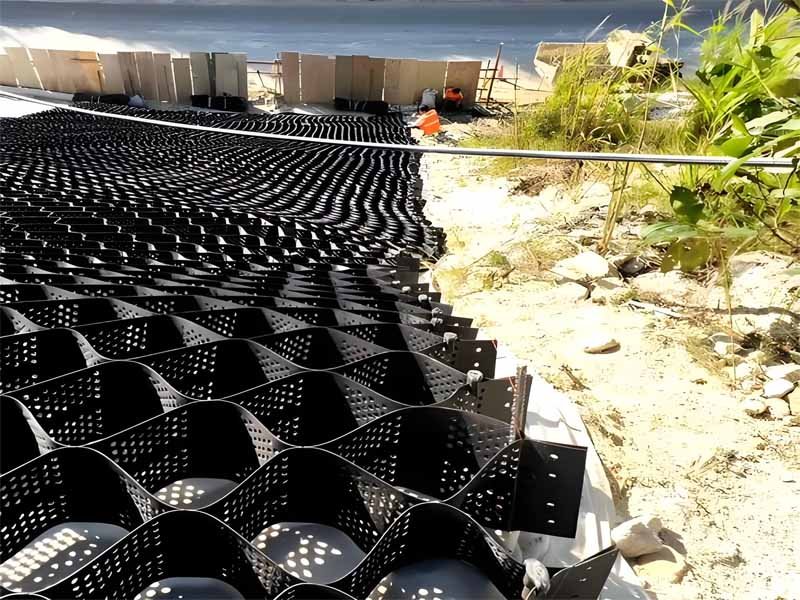
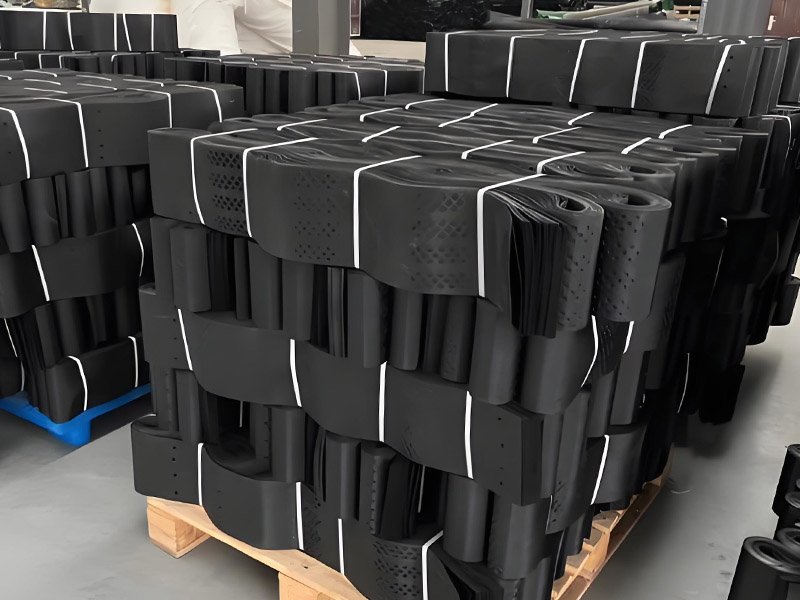
2. Factors to Consider When Choosing a Geocell for Your Driveway
Selecting the right geocell for your driveway involves considering several factors, including the type of soil, the expected load, the climate, and the specific requirements of your project. Here are the key factors to consider:
2.1 Geocell For Driveway – Material Quality and Durability
The material used to manufacture the geocell is one of the most critical factors to consider. High-density polyethylene (HDPE) is the most common material used for geocells due to its strength, flexibility, and resistance to environmental factors such as UV radiation, chemicals, and temperature fluctuations.
2.11 Geocell For Driveway – HDPE Geocells:
These are highly durable and resistant to corrosion, making them suitable for long-term applications. They are also flexible, allowing them to adapt to the terrain and withstand dynamic loads.
2.12 Geocell For Driveway – Other Polymeric Materials:
Some geocells are made from other polymers, such as polyester or polypropylene. While these materials may offer specific advantages, such as higher tensile strength, they may not be as resistant to environmental factors as HDPE.
When choosing a geocell, ensure that it is made from high-quality, UV-stabilized HDPE to ensure long-term performance and durability.
2.2 Geocell For Driveway – Cell Size and Depth
The size and depth of the geocell cells play a significant role in determining its load-bearing capacity and stability. Geocells are available in various cell sizes and depths, typically ranging from 4 to 12 inches in depth and 6 to 12 inches in diameter.
2.21 Geocell For Driveway – Cell Size:
Larger cell sizes are generally used for applications requiring higher load-bearing capacity, such as driveways that will support heavy vehicles. Smaller cell sizes are suitable for lighter loads or areas with less traffic.
2.22 Geocell For Driveway – Cell Depth:
Deeper cells provide greater confinement and stability, making them ideal for driveways with soft or unstable soils. However, deeper cells may require more infill material, which can increase costs.
Consider the expected load and the type of soil on your property when selecting the cell size and depth. For most residential driveways, a geocell with a depth of 6 to 8 inches and a cell size of 8 to 10 inches is typically sufficient.
2.3 Geocell For Driveway – Infill Material
The infill material used in the geocell is another critical factor to consider. The infill material provides the necessary strength and stability to the geocell structure. Common infill materials include gravel, crushed stone, sand, and concrete.
2.31 Geocell For Driveway – Gravel and Crushed Stone:
These are the most commonly used infill materials for driveways. They provide excellent drainage and load-bearing capacity. The size and type of gravel or crushed stone should be chosen based on the expected load and the geocell cell size.
2.32 Geocell For Driveway – Sand:
Sand is a cost-effective infill material but may not provide the same level of stability as gravel or crushed stone. It is suitable for lighter loads or areas with good drainage.
2.33 Geocell For Driveway – Concrete:
In some cases, concrete may be used as an infill material for added strength and durability. However, this is typically reserved for heavy-duty applications or areas with extremely soft soils.
Choose an infill material that is compatible with the geocell and provides the necessary strength and stability for your driveway.
2.4 Load-Bearing Capacity
The load-bearing capacity of the geocell is a crucial consideration, especially if your driveway will be subjected to heavy loads, such as trucks or recreational vehicles. The load-bearing capacity depends on several factors, including the geocell material, cell size, depth, and infill material.
2.41Static Loads:
These are constant loads, such as the weight of parked vehicles. Geocells with smaller cell sizes and deeper depths are generally better suited for static loads.
2.42Dynamic Loads:
These are moving loads, such as vehicles driving over the driveway. Geocells with larger cell sizes and greater flexibility are better suited for dynamic loads.
Consider the types of vehicles that will use the driveway and choose a geocell with the appropriate load-bearing capacity to ensure long-term stability and performance.
2.5 Installation and Maintenance
The ease of installation and maintenance is another important factor to consider when choosing a geocell for your driveway. Some geocells are designed for quick and easy installation, while others may require more specialized equipment or expertise.
2.51 Installation:
Look for geocells that are easy to install and can be adapted to the specific contours of your property. Some geocells come with interlocking systems that make installation faster and more straightforward.
2.52 Maintenance:
Geocells are generally low-maintenance, but it’s essential to choose a product that is resistant to environmental factors and can withstand the test of time. Regular inspections and minor repairs may be necessary to ensure the long-term performance of the geocell.
Consider the installation and maintenance requirements when selecting a geocell to ensure that it is a practical and cost-effective solution for your driveway.
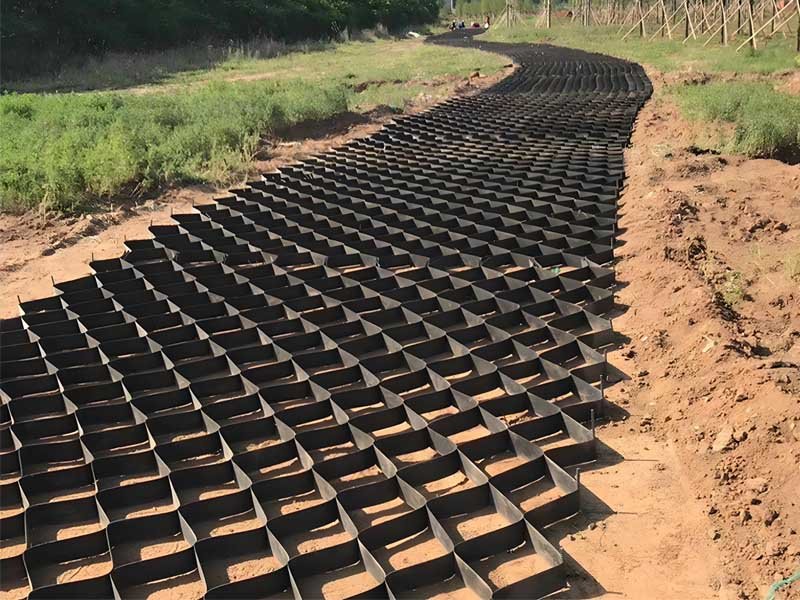
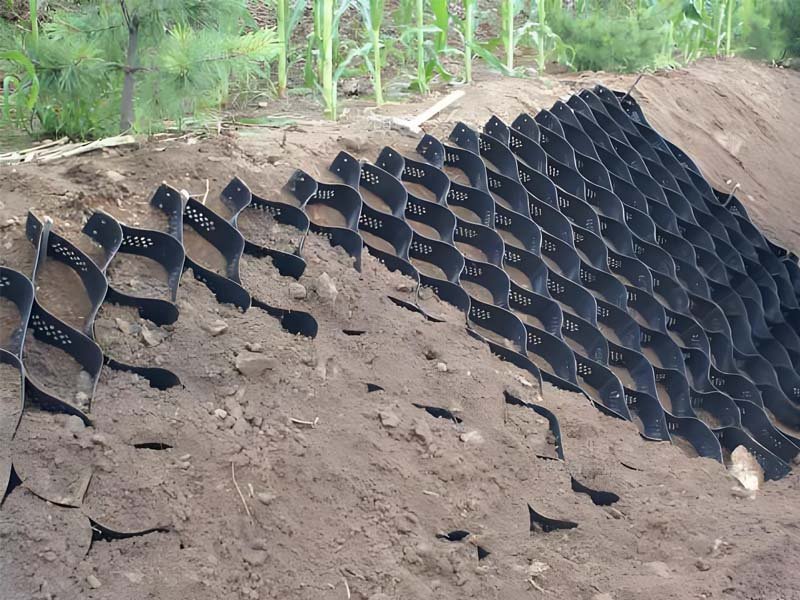
2.6 Environmental Considerations
Environmental factors, such as climate, soil type, and drainage, can significantly impact the performance of a geocell. It’s essential to choose a geocell that is suitable for the specific environmental conditions of your property.
2.61 Climate:
If you live in an area with extreme temperatures or frequent freeze-thaw cycles, choose a geocell that is resistant to temperature fluctuations and UV radiation.
2.62 Soil Type:
The type of soil on your property will influence the choice of geocell and infill material. For example, if you have soft or clayey soil, you may need a deeper geocell with a more robust infill material.
2.63 Drainage:
Proper drainage is essential for the long-term stability of your driveway. Choose a geocell and infill material that promote good drainage and prevent water from pooling on the surface.
Consider the environmental conditions of your property when selecting a geocell to ensure that it will perform well in the long term.
2.7 Cost and Budget
Finally, consider the cost and your budget when choosing a geocell for your driveway. While geocells can be a cost-effective solution in the long run, the initial investment can vary depending on the type of geocell, infill material, and installation requirements.
2.71 Initial Cost:
The cost of the geocell itself, as well as the infill material and installation, should be factored into your budget. Higher-quality geocells may have a higher upfront cost but can save you money in the long run by reducing maintenance and repair costs.
2.72 Long-Term Savings:
Consider the long-term savings associated with using a geocell, such as reduced maintenance costs, increased durability, and improved load-bearing capacity.
Choose a geocell that fits within your budget while still meeting the necessary performance and durability requirements for your driveway.
3. Summary
Choosing the right geocell for your driveway is a critical decision that will impact the longevity, stability, and overall performance of your driveway. BPM Geocell produces quality that meets your specific needs by considering factors such as material quality, cell size and depth, fill material, load-bearing capacity, installation and maintenance, environmental conditions, and cost.

